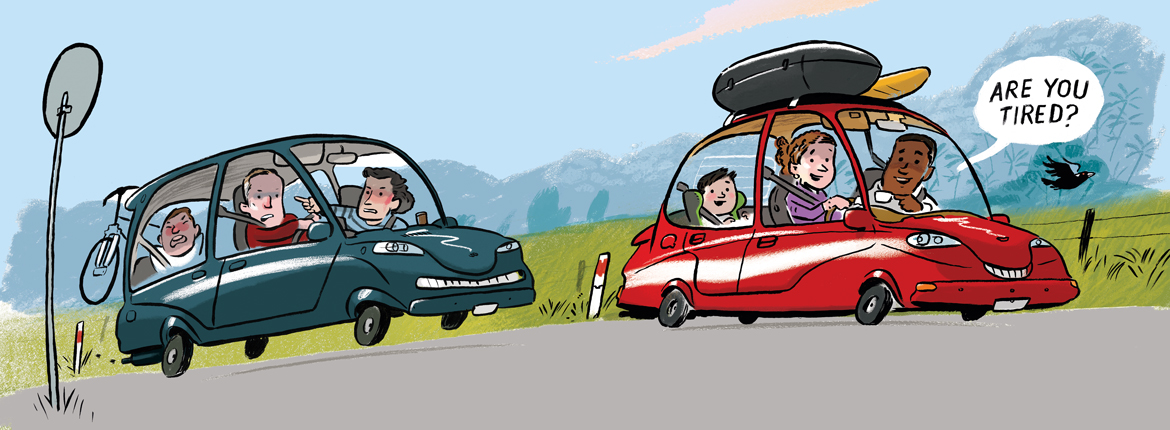
Team effort
How do passengers help – or hinder – drivers?
Politely pointing out hazards, helping with directions and managing non-driving tasks such as sorting the car stereo are welcomed by drivers; criticising driving style and being distracting – not so much.
This is what an AA Research Foundation project with the Transport Research Group at the University of Waikato found, when looking at what drivers want from their passengers.
WORST passengers: Comment negatively on driving style. Most drivers don’t take comments about their driving style well! Passengers should be sensitive, although drivers should also be conscious of when comments are warranted. It’s better to discuss persistent issues when you’re not in the car. Comments about other road users’ behaviour are also often not helpful and can even be distracting.
Remark on things the driver cannot do anything about, like running late or missing a turn.
Give late directions. Timely navigation is highly valued by drivers; short or late notice of directions can be stressful. If your directions are late, try to deliver them calmly and ideally offer a solution at the same time.
Make sudden noises. Unexpected loud sounds are unnerving and distracting.
BEST passengers: Point out hazards, by helping drivers check intersections are clear and being quiet during difficult manoeuvres.
Show care for the driver, for example asking if they are too tired to drive.
Help with non-driving tasks. Many drivers in the survey said they would appreciate even more help with non-driving tasks like answering their cellphone, adjusting air conditioning or radio, looking after children, unwrapping food or drink. (Not all those surveyed did though, so check your driver wants this help.)
Give timely directions. Help with navigation and point out parking spots.
Chat, but consider the demands of driving. Conversation can help drivers stay alert but passengers should pause when the driver needs to concentrate. Good passengers are mindful that topics like discussing the trip can be better for the driver’s mood than talking about problems or having an argument!
Tips for drivers
Be open about what’s helpful. Tell passengers what you find helpful
and call out behaviour that’s unhelpful or distracting.
Instil good passenger habits in young people. Encourage children to be helpful passengers, which will eventually make them safer learner drivers, too.
Consider having a conversation about what’s helpful, and what’s not, before
a trip on unfamiliar roads.
Reported by The NZ Automobile Research Foundation for our AA Directions Autumn 2020 issue
